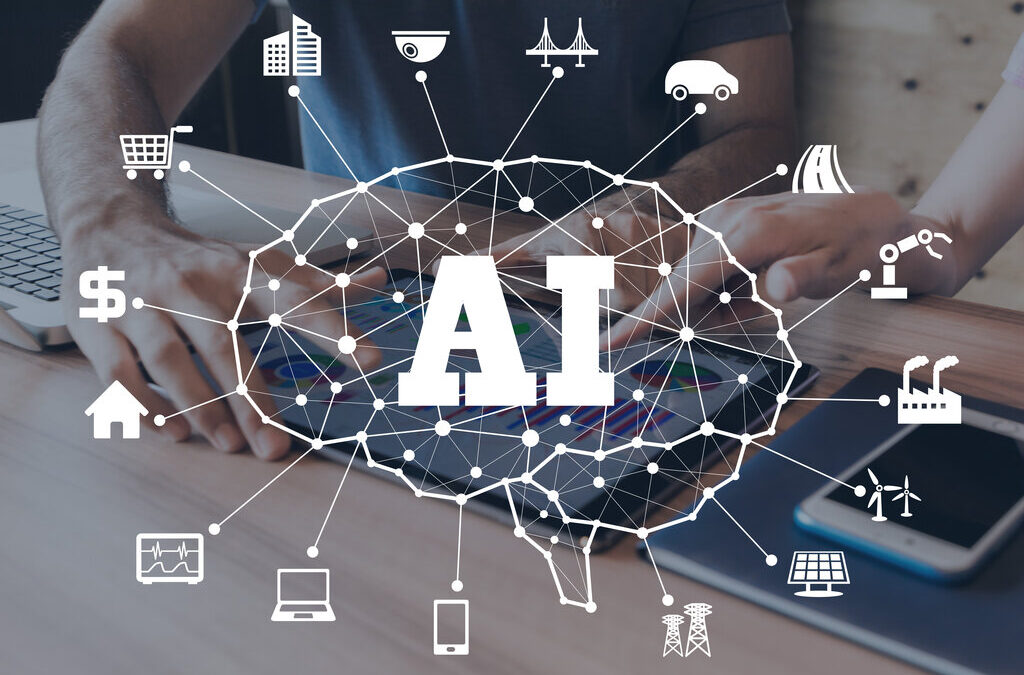As a startup, you’re up against some unique challenges: fierce competition, tight resources, and the constant push to innovate. Artificial intelligence (AI) can be a game-changer, giving you the power to streamline operations, elevate customer experiences, and make smarter, data-driven decisions. But to truly tap into AI’s potential, it’s crucial to understand the key milestones that have shaped its capabilities—and how these align with your business goals. From foundational models to real-time decision-making and personalized interactions, these AI milestones can offer you effective strategies for scaling, boosting operational efficiency, and staying relevant in the market.
In this article, we’ll dive into the AI milestones that are driving success for startups and explore how business owners can leverage them to gain a competitive edge.
Remarkable AI Milestones and Timelines
Key milestones include the 1956 Dartmouth Conference, wherein AI was officially recognized as a field of study. In 1966, ELIZA, an early chatbot developed at MIT, simulated human conversation, showcasing AI’s potential for natural language processing.
The 1990s marked a turning point for AI with IBM’s Deep Blue defeating world chess champion Garry Kasparov in 1997, demonstrating the power of machine learning and problem-solving. The early 2000s brought advancements in deep learning and neural networks, with AI technology finding its way into search engines, recommendation systems, and personal assistants like Apple’s Siri, launched in 2011.
In 2016, Google DeepMind’s AlphaGo defeated a world champion in Go, a complex strategy game, solidifying AI’s potential in mastering tasks previously thought exclusive to human intelligence. More recently, OpenAI’s GPT models, including GPT-3 in 2020, showcased AI’s ability to generate human-like text, paving the way for innovations in creative and professional fields.
Inform your startup goals and strategies by checking out the Artificial Intelligence revolution timeline to learn more about this technology’s recent developments. Understanding the latest breakthroughs in AI can help you identify emerging trends, allowing you to stay ahead of the competition. From advancements in generative AI to improved machine learning models, this timeline provides insights to shape your strategic decisions.
Ready to harness AI innovations to propel your startup forward?
Contact Growth Hackers
The Foundation of AI: Machine Learning and Deep Learning
When it comes to the core of modern AI, you’re looking at two major players: Machine Learning (ML) and Deep Learning (DL). ML empowers systems to improve and adapt based on experience, while DL, a specialized subset of ML, uses neural networks that mimic human brain processes. Together, these technologies provide powerful tools for startups like yours, helping with data analysis, pattern recognition, and predictive insights.
Imagine using ML algorithms to dive into your customer data and anticipate their buying habits. With this information, you could make smarter marketing decisions and tailor your offers to what customers want. Meanwhile, DL is invaluable for complex tasks like recognizing images or processing speech, which means if you’re in healthcare, retail, or finance, you can automate intricate processes and enhance user engagement effortlessly.
In a similar vein, function calling in OpenAI provides developers the tools to create applications that can interact with users more effectively by executing specific functions based on their inputs.
Whether it’s for recommendation engines, customer segmentation, or fraud detection, incorporating ML and DL can be a game-changer for your startup. Early ML adoption allows you to refine data-driven decisions, while DL takes things further by managing tasks that need advanced data processing.
Natural Language Processing (NLP) for Enhanced Communication
Natural Language Processing (NLP) transforms the way machines understand and communicate with us, opening up tons of possibilities. With NLP, your startup can create chatbots, virtual assistants, or sentiment analysis tools, giving customers instant support and personalized interactions. Especially if you’re focused on customer service, NLP tools are essential for quick response times, satisfied customers, and efficient operations.
Adding NLP to your customer service setup means better user experiences and easier inquiry management. Plus, NLP-driven sentiment analysis lets you see real-time customer feedback and public sentiment. That way, you’re always ready to respond to emerging trends or address concerns proactively.
Computer Vision for Enhanced Product and Service Offerings
Computer vision lets machines interpret and process visual data, which is revolutionizing industries like healthcare, retail, manufacturing, and security. For a startup, this technology can help with quality control, inventory management, and even personalized advertising. Think of an e-commerce business using computer vision to analyze customer images and suggest products, or a manufacturing startup detecting defects in products.
This tech not only boosts operational efficiency but also enhances customer experiences. For instance, integrating computer vision into your inventory system can cut waste and optimize stock, while customer-facing applications could offer personalized experiences like virtual try-ons for fashion and beauty products.
Real-Time Data Processing and Analytics
Real-time data processing gives you the ability to collect, analyze, and act on data as it’s generated, providing insights that drive immediate decisions. This capability is essential for startups in dynamic industries, like finance, retail, and healthcare, where timely data can make all the difference. Real-time analytics allows you to respond quickly, whether it’s adjusting a marketing campaign, improving operations, or maintaining product quality.
Picture a scenario where your online retail startup adjusts prices based on real-time demand or a healthcare startup monitors patient data to provide instant insights that could improve outcomes. Real-time analytics means you’re always prepared to make data-informed decisions with no delays required.
Predictive Analytics and Business Forecasting
Predictive analytics takes historical data, machine learning, and statistical algorithms to help forecast future outcomes. As a startup, this can be a game-changer for predicting demand, managing inventory, and staying on top of market trends. By forecasting customer behavior or product demand, you can optimize resources, cut costs, and boost revenue.
Integrating predictive analytics into your business intelligence gives your team data-driven insights on market trends and customer preferences. For example, a SaaS startup might use predictive analytics to detect potential churn and intervene proactively, while an e-commerce startup could use it to anticipate sales trends and keep inventory levels just right.
Personalization and Customer Experience
With AI-driven personalization, you’re not just engaging customers—you’re delivering experiences that feel uniquely tailored to them. AI empowers businesses to analyze vast amounts of data and predict individual preferences, enabling you to provide recommendations, content, and promotions that resonate deeply with each customer. This level of personalization enhances loyalty, boosts satisfaction, and drives higher conversions, creating a customer experience that stands out.
Integrating personalization into your CRM, email marketing, and product recommendations allows you to easily attract and retain customers. For instance, a streaming service could analyze viewing habits to suggest shows uniquely suited to a user’s tastes, while a retail startup could craft promotions based on past purchases, maximizing engagement and sales.
As personalization technology advances, its impact on B2B sales is expected to expand significantly. Gartner forecasts that by next year, 75% of B2B sales teams will enhance their traditional sales approaches with AI-guided selling tools. This trend highlights the growing role of AI-driven personalization in boosting sales and elevating customer experiences across both B2C and B2B landscapes.
Autonomous Systems and Robotics
For startups in fields like manufacturing, logistics, or healthcare, autonomous systems and robotics are transforming efficiency and productivity. A well-structured business plan outline can help integrate these technologies effectively. Autonomous systems, such as self-driving vehicles and warehouse robots, allow you to perform tasks without human intervention, cutting labor costs and boosting efficiency. Robotics in logistics can automate tasks like sorting, picking, and transporting, streamlining supply chains and operations.
Imagine a warehouse startup using autonomous robots to manage inventory and fulfill orders, cutting down on time and costs linked to manual labor. For startups focused on operational efficiency, autonomous systems offer a direct path to streamlined processes and reduced costs.
Unlock the future of your startup with AI-driven growth strategies today!
AI-Driven Security and Fraud Detection
As cybersecurity threats grow more advanced, AI-driven security measures have become essential for startups. AI’s pattern detection capabilities are ideal for spotting potential fraud, safeguarding your data, and preventing unauthorized access. Industries like finance, e-commerce, and healthcare are especially vulnerable to security threats, and AI tools can help monitor transactions, flag suspicious behavior, and protect sensitive data.
For example, a FinTech startup might use AI to track transactions and detect fraud, while a healthcare startup could rely on AI-driven security to protect patient data. These tools give you real-time monitoring and alert systems, enhancing your security posture.
Natural Human-Machine Interfaces (HMI) for Improved Usability
Natural HMI—such as voice, gesture, and facial recognition—make interactions with technology intuitive and accessible. For your startup, this means creating products that are easier to use, boosting customer satisfaction and accessibility. HMI is particularly valuable in consumer-facing products, where ease of use can make or break its adoption.
You can integrate HMI into applications where user experience is key. For example, a smart home product might use voice recognition for control, while a healthcare application could implement gesture recognition to reduce infection risk by enabling touchless interaction.
Ethical AI and Transparent Algorithms
As AI grows in prominence, so does the need for ethical and transparent practices. Today’s startups need to consider the ethical implications of AI—from data privacy to fairness in algorithms. Transparency means developing AI models that users can understand and trust, essential for building credibility and loyalty.
Prioritizing transparency with explainable AI (XAI) models ensures that users understand and trust your AI’s decisions. Following ethical guidelines around data usage and fairness also helps your startup stand out, especially in markets where trust and transparency are paramount.
Final Thoughts on How AI Milestones Can Drive Startup Success
By aligning your goals with these AI milestones, you’re setting your startup up for long-term success. Embracing AI-driven innovations—and staying mindful of ethical considerations—puts you in a strong position to offer solutions that resonate with modern customer expectations. With each AI milestone, new opportunities emerge to redefine your industry, make a lasting impact, and ultimately drive growth and success.
Growth Hackers is an award-winning Ai marketing company helping businesses from all over the world grow. There is no fluff with Growth Hackers. We help entrepreneurs and business owners leverage AI milestones, increase their productivity, generate qualified leads, optimize their conversion rate, gather and analyze data analytics, acquire and retain users and increase sales. We go further than brand awareness and exposure. We make sure that the strategies we implement move the needle so your business grow, strive and succeed. If you too want your business to reach new heights, contact Growth Hackers today so we can discuss about your brand and create a custom growth plan for you. You’re just one click away to skyrocket your business.






